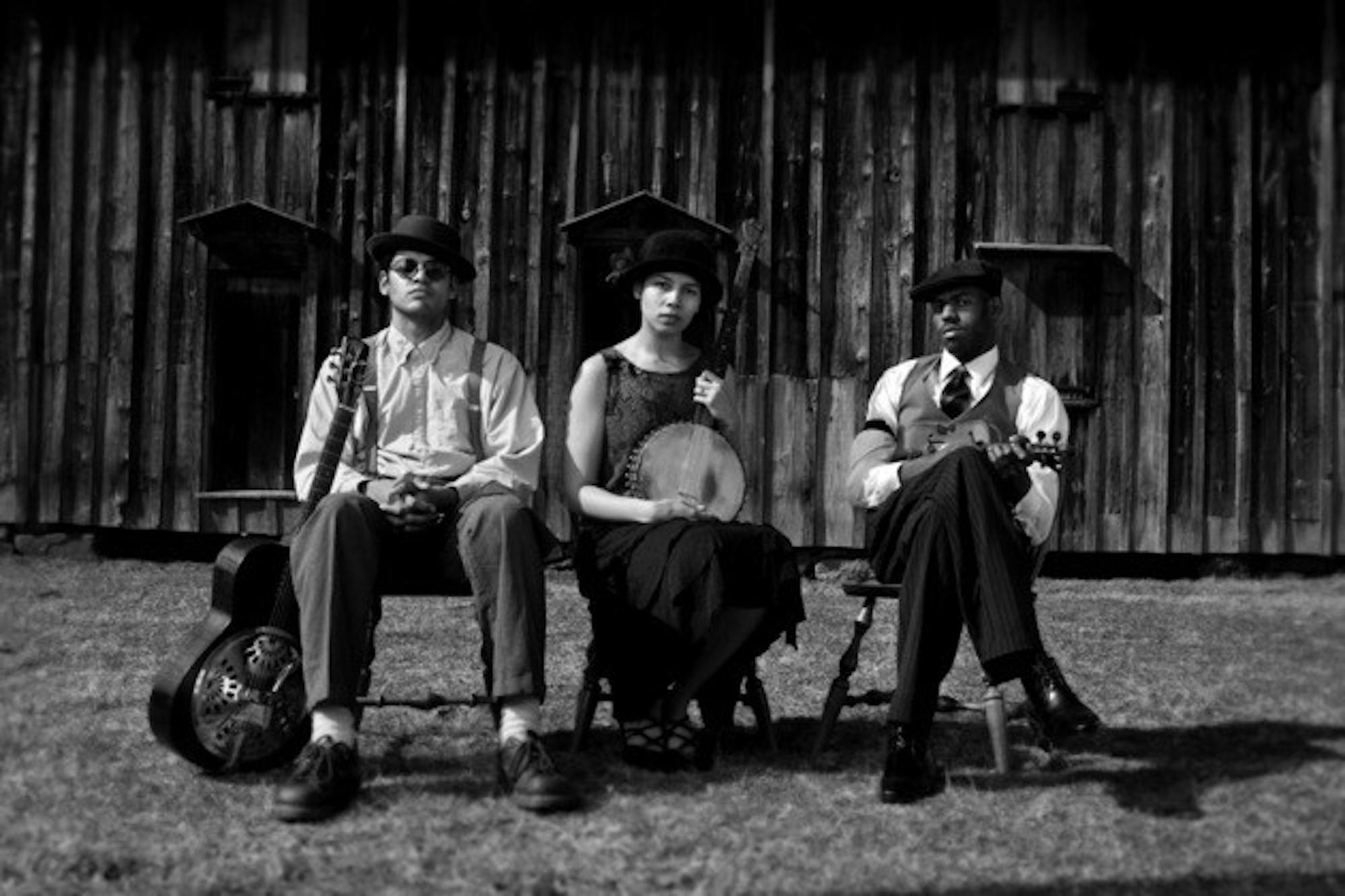But despite the similarities, don't expect tonight's performance to be a homogenous showcase of two fairly similar bands. The Chocolate Drops and Old School Freight Train play very different kinds of music.
The Chocolate Drops are a trio dedicated to the music of North Carolina's Piedmont region, close to the Appalachian Mountains. The group's goal is to carry on the traditional fiddle and banjo music of the communities in the foothills of the Carolinas, and, as perhaps the only young, black jug band recording and performing music today, they have garnered quite a bit of national attention.
The group has released two albums: "Sankofa Strings: Colored Aristocracy" in 2006 and "Dona Got A Ramblin' Mind" in 2007. They have also recently contributed to the soundtrack of the Denzel Washington film "The Great Debaters."
Old School Freight Train, on the other hand, are nearly without genre and are almost impossible to pin down to a particular kind of music. The band combines jazz, funk, hip-hop, Celtic and Latin sounds, to name just a few. Their strongest roots, though, are in old-time bluegrass, and they've been hailed by NPR and the Boston Globe as among the most exciting and original old-time bands to come along in years.
Old School Freight Train have also gained a reputation for their excellent live performances. They've performed at the Newport Folk Festival and the Strawberry Music Fest, among others, and spent the fall touring with folk singer-songwriter Josh Ritter.
The double bill is funded in part by the Hop's Class Divide program, a three-year initiative that brings performances examining economic and social class issues to the Hop.
Margaret Lawrence, the Hop's director of programming, said that tonight's show will be the first musical performance funded through Class Divide.
"The performance was put together before linking it to Class Divide in my mind," she said. "[The bands] have their own individual followings and I wanted to introduce those audiences to each other."
Piedmont string band music and traditional bluegrass each emerged from situations of economic difficulty; respectively, the rural foothills region of the Carolinas, West Virginia and Kentucky, where many people were struggling to survive while working in the coal mining industry in the 1930s and 1940s.
"Both of those music forms are really, really important to American music," Lawrence said. "They tell a story through their music form."
Both bands play tonight at 7 p.m. in Spaulding Auditorium. A post-performance discussion will be held after the concert.
Before the performance, professors Bruce Nelson of the history department and Ted Levin of the music department will lead a discussion on music and migration, today at noon in the faculty lounge.




![HONEYJOON_[Ines Gowland]_4.PNG](https://snworksceo.imgix.net/drt/7af2efc8-1bd1-4001-b754-e2718ce663b8.sized-1000x1000.PNG?w=1500&ar=16%3A9&fit=crop&crop=faces&facepad=3&auto=format)